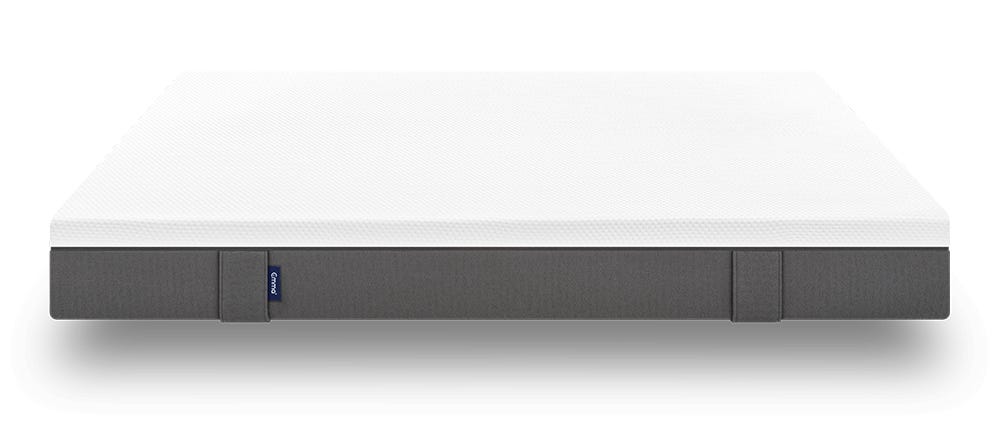What's The Best Mattress for Body Support
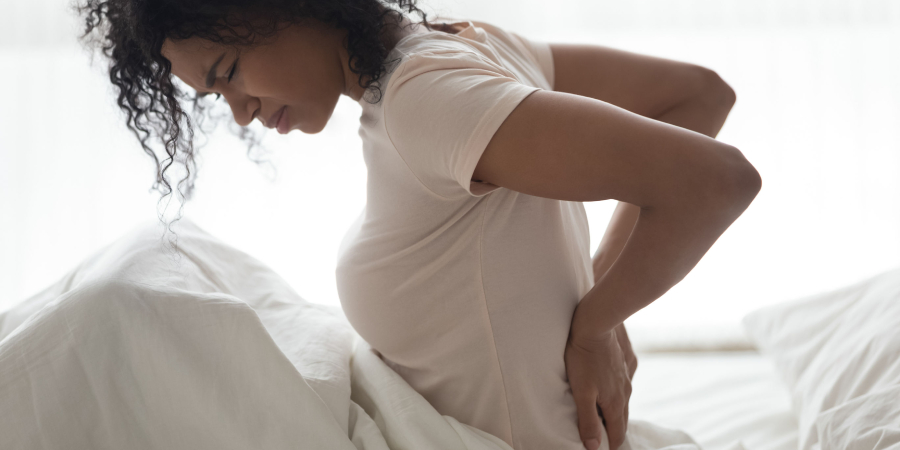
Few things cause more inconvenience to your daily life than the wrong mattress. Picture it; you've had a long, hard day, and you can't wait to crawl into bed. The mattress is lumpy, you can't get comfortable, and instead of waking up feeling well-rested, it seems like you spent the whole night lifting heavy boxes.
In this guide, we'll look at how choosing the wrong mattress can affect your mental and physical wellbeing, essential factors to consider when choosing a new mattress, and reveal the best mattress for back pain and other joint issues.
If you're sick of waking up with a stiff neck or aching back, the team here at Emma Sleep has some vital tips, so you can finally wake up feeling refreshed. Let's dive in.
The Effects of Sleeping on a Bad Mattress
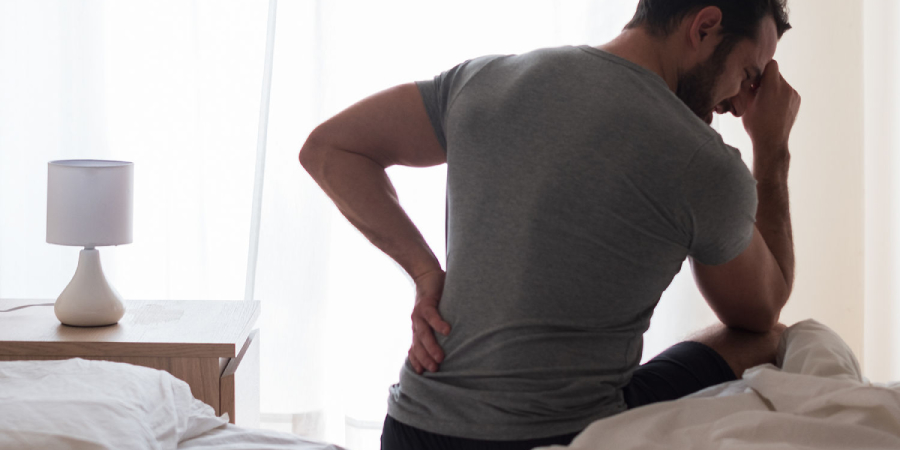
When evaluating your sleep quality, you need to think about how many hours of undisturbed sleep you get each night and how you feel in the morning. A bad night's sleep doesn't just make you feel drowsy the next day; it can also be a real pain in the neck, back, legs - and will impact your mood.
Here are some common effects of sleeping on a bad mattress.
You Just Can't Seem to Concentrate
It's no secret that drowsiness and poor concentration go hand in hand, and many people find that a poor night's sleep impacts their ability to perform daily functions. In the best-case scenarios, poor concentration can result in under-performance at work and forgetting important information.
But there can be severe consequences to poor concentration, including accidents while you're driving. Both fatigue and a lack of attention are two of the four major causes of road accidents, so while sleeping on an unsuitable mattress for your needs might not seem like a significant issue, it can result in harming yourself and others.
The Bathroom Scales Are Creeping Up
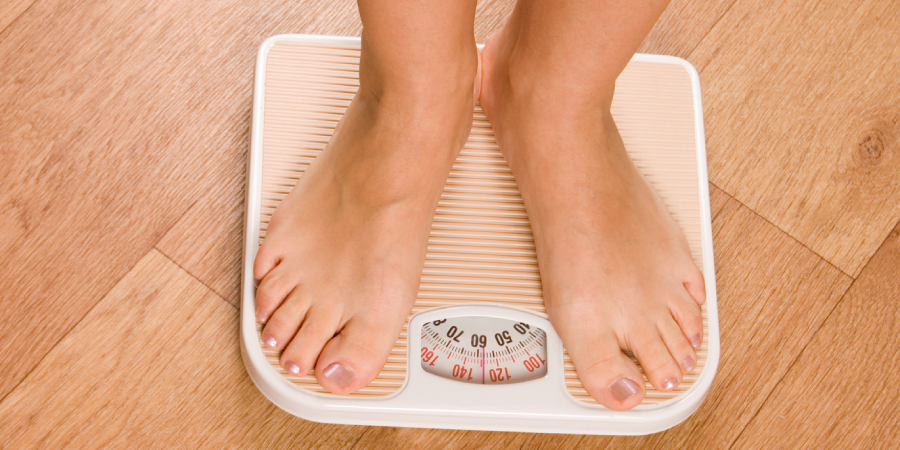
You wouldn't think that sleeping on a bad mattress could contribute to weight gain, but it's a known fact that people who wake up more during the night are prone to overeating. When you're well-rested, you can perform essential functions, but a lack of sleep means you're more likely to search for ways to boost your energy.
Due to the higher consumption levels of foods - especially sugar - poor sleepers are often overweight. Both ghrelin and leptin are essential hormones to controlling your appetite and letting you know when it's time to stop eating.
When you don't get enough sleep, you'll produce more ghrelin, which tells your brain that you need to eat more. Fewer than seven hours of shut-eye will also cause your leptin levels to decrease. Leptin is that little voice in your head that tells your body it has enough fuel.
A combination of high ghrelin and low leptin means you'll feel hungrier, consume unhealthy foods and gain weight. Just two extra hours of sleep a night can help you lose those extra lbs, so if you're sick of fad diets and gym sessions that offer no results, it's time to evaluate how your mattress might be impacting your sleep quality.
You Feel Depressed
Depression can make it impossible for people to function, and everything from their familial relationships to social life can suffer. Studies show that three-quarters of people with clinical depression are insomniacs (NCBI).
While depression can occur for many reasons, including stress at work, a life-changing event and as a symptom of other conditions, poor sleep quality is one of the most significant contributors.
Your Libido is Non-Existent
According to The Telegraph, a lack of sleep can significantly reduce a man's sex drive and results in a lack of testosterone. Surprisingly, although women suffer from reduced libidos, the link between sleep and low sex drive occurs more in men.
When you think of how awful you feel after a horrible night of sleep, it's clear to see why it affects so many people's libidos. We all know that fatigue and stress mean less physical intimacy, but joint pain and back issues will also impact your relationship.
A mattress that supports your body and reduces pain could be the answer to your problems and re-ignite your love life.
You Can't Live Without Concealer
If the concealer is your best friend, then we're guessing you suffer from dark circles under your eyes - which are caused by poor sleep quality. While it's natural to have small eye circles, some people find it impossible to manage them.
Most adults need between 7-9 hours of sleep a night, so anything less means you're probably going to do battle with your circles every morning. If it gets to the point when even concealer doesn't work, then you know you've got a problem.
You Suffer From Back Pain & Sore Joints
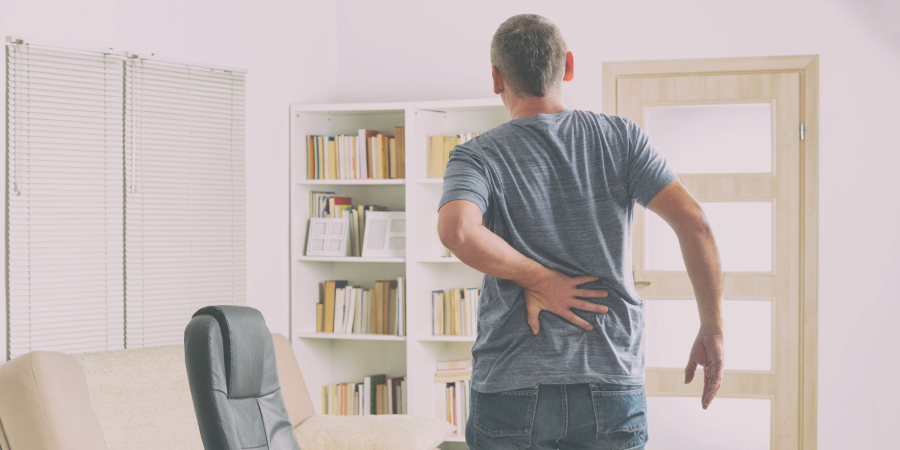
Is there anything worse than joint and back pain? Mattresses are one of the leading causes of a bad back, and if you don't have the proper support, your back pain can turn into long-term issues with your posture.
Your bed can also irritate existing joint conditions such as arthritis - especially when it doesn't offer adequate support for each pressure point in your body. As your joints become more inflamed, they'll restrict your movement throughout the day and make simple tasks seem impossible.
The best mattresses offer pressure relief and can improve your spinal alignment, but a poor bed will at the very least cause back pain. If you don't get a new mattress, you could end up seeing a chiropractor and suffer from back issues for the rest of your life.
A combination of high ghrelin and low leptin means you'll feel hungrier, consume unhealthy foods and gain weight. Just two extra hours of sleep a night can help you lose those extra lbs, so if you're sick of fad diets and gym sessions that offer no results, it's time to evaluate how your mattress might be impacting your sleep quality.
Choosing The Best Mattress For Support: Why Your Body Type Matters
When choosing the best mattress for body support, there are so many things to consider. Do you need a mattress for general support? Is there an issue with your back? What's wrong with your current bed?
But let's not forget that body type plays a huge role in finding a mattress that suits your body. There's no standard weight for humans, and one person's dream mattress might be another's nightmare.
It's difficult to know where to start when purchasing a new mattress, so we'll split this guide into sections to make things easier.
Here's how to choose the best mattress which will support your body type.
Why Does Body Type Matter?
Your weight can be a significant factor in choosing the best mattresses for your needs. Different people will need to think about mattress durability, length, width, and comfort levels. Let's take a look at the best mattress for each body type.
Slim or Underweight Sleepers
If you're naturally small or underweight, then firm mattresses won't provide the comfort you need. The reason for this is that firm mattress types give extra support to people, but if you're light, a harder surface could result in pins and needles.
Instead, sleepers with a light bodyweight should choose softer mattresses because they don't need as much support as heavier people. A soft mattress will offer comfort but also improve spine alignment.
Memory foam will provide proper support, but it's best to choose a mattress that's designed to be softer. The Emma Premium mattress has a combination of foam and spring coils, so while the foam supports your body, the springs give it extra bounce.
Average Sleepers
If you're of average bodyweight, then you'll have more choices. But that doesn't mean every mattress will be ideal for your needs. Instead, you should think about your preferred sleeping position because that will be the definitive factor in your decision-making process.
We'll go through the best mattresses for side, front or back sleepers later in this post.
Heavy Sleepers
If you're on the heavier side, then finding a supportive mattress should be at the top of your priority list. Soft mattresses won't be able to stabilize your joints, and as overweight people are more likely to suffer from back and shoulder pain, you should find a thick mattress with support foam.
While many heavier people believe that their mattress should have extra comfort layers, it's more important to focus on how your bed will reduce the risks of spine misalignment.
Ultimately, you don't want extra comfort layers that don't offer proper support, so it's best to make sure you read the reviews and reach out to manufacturers if you're unsure about how the top layer relieves pressure points.
Your Body Shape is Important Too
Bodyweight is one thing, but the shape is entirely different. No two people are the same, and the shape of your body will define whether or not you get enough support from a mattress.
For example, two women could both be 5ft 7 and weigh ten stones. But one could be thin, while the other might be curvy. It ultimately depends on your genes and how your body carries weight - so you should always think of your body shape if you want a high-quality mattress.
Slim Body Shape
Individuals with a slim body shape are lucky because weight distributes itself evenly over the body. When you lie down, you won't have any pressure points, which means you can choose any mattress (as long as it's not too hard).
Average Shape
If you fall on the average end of the scale, it means you might be slightly larger in certain areas, such as the stomach, hips or thighs. People carry weight differently, but the important thing to know is you'll need a mattress that offers moderate pressure point relief.
Medium mattress types are best for average individuals because they offer pressure relief but won't cause any discomfort.
Curvy Shape
Curvy individuals are more likely to hold weight in their hips and thighs, so as you can imagine, there is uneven distribution when lying on a mattress. Due to increased pressure points, softer beds won't offer the proper support.
If you're a curvy person, it's best to look for mattresses that have a mixture of comfort and support too. Memory foam always provides extra comfort, and a combination of pocket springs and strong foam creates a firmer mattress that promotes spine alignment.
The Best Mattress For Back Pain
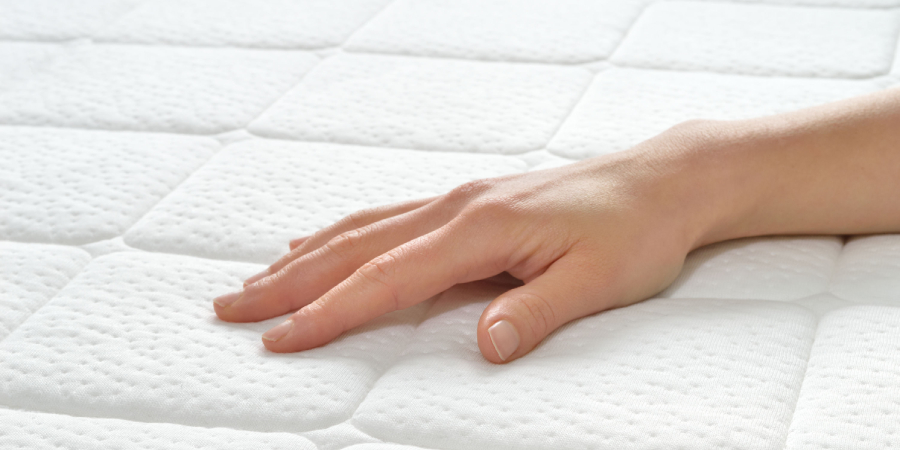
Back pain is one of the most common ailments that people suffer from, and it can make everyday tasks seem unbearable. Finding the right mattress for your needs is central to not only preventing but reducing the symptoms of back pain.
Most people find their lower back is most affected, but if you're looking for a one-size-fits-all type of mattress solution - there isn't one.
The main thing to consider is whether the mattress you choose will offer long-term support and suit your body type.
For example, a slim individual with a bad back would still require a softer mattress than an obese person.
There are certain qualities you should look for when choosing a mattress for back pain.
Let's take a look at the different mattress types and how effective they are for back pain.
Do Soft or Firm Mattresses Provide More Body Support?
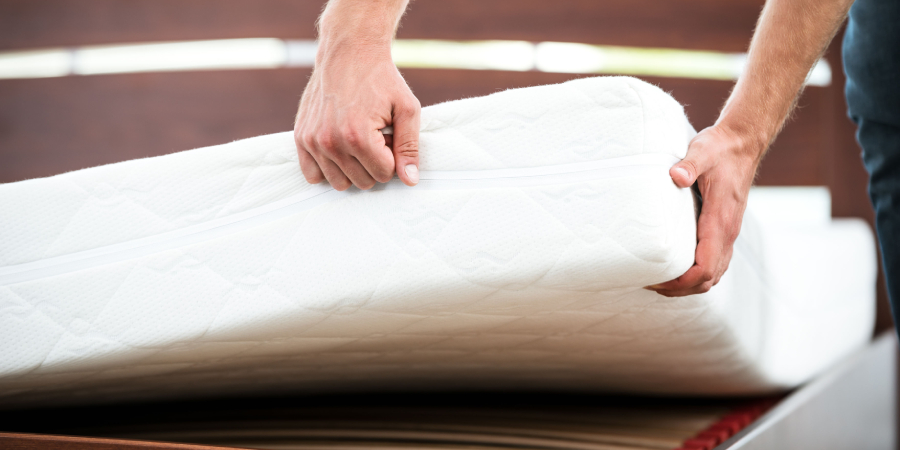
When it comes to choosing the right mattress, people often think about the structure before fillings. Soft or firm, it seems so simple to choose, right? But it's a real head-scratcher for some people.
Ask around, and one person might tell you that firm mattresses are best, while another will say that a soft mattress is ideal for back pain. So, how do you make a decision?
By understanding your body shape, preferred sleeping position and the type of back pain you're dealing with, you can choose a mattress consistency - then it's all about the layers, foam and springs.
Soft Mattresses
For some people that experience recurring back pain, soft mattresses offer a more comfortable sleep, which can be beneficial if you're slim. Low body fat means that sleeping on a firm mattress can be uncomfortable - especially if the springs dig into your body.
However, soft mattresses aren't always ideal for front and back sleepers, but side sleepers love pressure relief.
If you're on the heavier side or can only sleep on your back or front softer mattresses can cause back pain because they're more likely to sink.
Firm Mattresses
If you want to avoid back pain, a firm mattress will correct your posture, reducing the risks of lower back issues further down the line. Due to their consistency, firm mattress types won't sink, so heavier individuals will find them particularly beneficial.
Back and even front sleepers find firm mattresses offer them more support, but there are some drawbacks to consider.
If you're light, a hard mattress can put too much pressure on your back, and side sleepers find firm mattresses particularly uncomfortable.
While this mattress type can prevent back issues further down the line, a harder surface can make the problem a lot worse if you already have scoliosis or arthritis.
The Best Mattress Fillings For Body Support
So, now we've covered the pros and cons of both soft and firm mattresses, it's time to examine the fillings. Years ago, your average bed would consist of a divan and springs, but today there are a range of technologically advanced materials to choose between.
Some manufacturers mix and match materials to create hybrid beds, so choosing the right mattress can be a bit of a headache - especially if you suffer from back and joint issues.
Innerspring Mattresses
The OG of mattress types, innerspring models have a steel support system, which can offer support - and a lot of bounce.
Innerspring mattresses are cheap, so they're common in budget hotels, and landlords often supply them in furnished rooms.
While innerspring mattresses are great if you're on a budget, they don't offer much back support. They're often manufactured with low-quality materials, and as you probably know - a broken spring hurts.
Pocket Sprung Mattresses
Pocket sprung mattresses are the cooler, younger sibling of traditional coiled models. The difference is that each spring is covered in fabric, so instead of the springs acting in unison, your mattress will adapt to pressure points in your body.
For example, someone with more weight in their hip area will have the correct pressure relief without sacrificing the rest of their body.
However, pocket springs can still cause issues for people who suffer from chronic back pain, because it doesn't offer the same pressure relief as memory foam.
Latex Mattresses
Latex is one of those mattress materials that people either love or hate. It offers plenty of benefits, but the cons match that amount. If you suffer from back pain, a latex mattress can support and reduce the risks of aggravating slipped discs and muscular injuries by providing pressure support.
However, investing in a latex mattress requires a hefty bank balance. The premium price tag puts most people off, and as a material, latex is heavy - which isn't ideal if you're planning a house move any time soon.
Finally, the biggest drawback of latex is its inability to stop motion transfer. Couples will love the mattress - if they share the same sleeping habits. But restless sleepers should stay away from latex and look to memory foam mattresses instead.
Memory Foam Mattress
When it comes to finding a mattress that will support your body, memory foam is often the first thing that comes to mind. It was developed in the 1960s by NASA, but the space program decided against using the unique material.
Manufacturers knew that memory foam would be an excellent material for mattresses, but it was initially too expensive for the average consumer. Today, a memory foam mattress isn't just cost-effective; it's also renowned for providing sleepers with comfort and support.
Perhaps the best thing about memory foam is how well it adapts to temperatures, often becoming firmer when cold and soft in hotter temperatures.
What About Back Pain?
So, will a memory foam mattress reduce back pain? Yes! In fact, for individuals with bad backs, memory foam can be a big part of their recovery.
It adapts to your body, provides pressure relief, and cushions your spine while promoting better alignment and posture.
Because foam offers so much support, a slightly firmer mattress will be ideal for side, back, and stomach sleepers while still reducing back pain.
When it comes to the best memory foam mattresses, the Emma Original is an award-winning design that suits all types of sleepers. Known for its combination of comfort, support and patented Airgocell foam, the medium-firm mattress will protect your back and relieve current joint issues.
Hybrid Mattresses
Hybrid mattresses combine the functionality of superior materials to create a comfortable surface for pain sufferers. There are many hybrid mattresses for back pain, but memory foam and pocket springs are the most popular materials.
As we mentioned previously, memory foam makes a supportive yet comfy mattress, and pocket springs can correct poor posture by accommodating a range of sleeping positions.
Pocket springs with a foam layer can make an excellent orthopedic mattress, but people often find numerous foam layers to improve edge support.
Will Hybrid Mattresses Offer Body Support?
Hybrid mattresses combine the best materials to create a solution for back pain that offers long-term support and neck pain relief. Some manufacturers use foam to add extra comfort layers, while the pocket springs act as pressure relievers.
When choosing the best hybrid mattress for body support and back pain relief, you should consider the Emma Premium Mattress.
Crafted to perfection with a combination of memory foam and tall springs, the mattress is designed to offer firm support but is comfortable enough to promote a restful night's sleep.
Turning In
There's no perfect mattress for everyone because your individual needs will define which suits your needs. Back pain sufferers should be particularly aware of their weight, body shape and whether a condition or injury causes the pain.
You don't need to suffer from back and joint pain, and if you want to wake up in the morning feeling refreshed and ready to start the day, it's time to turn in your old mattress and try something different.
At Emma Sleep, we have a range of comfortable and supportive bedding solutions, including our cloud duvet - which is made of microfibre and perfect for spring and autumn.
The right mattress will support your body and enhance your wellbeing. What could be better?
If you'd like to receive tips on how to get a better night's sleep and exclusive information on the latest Emma Sleep mattresses and bedding solutions, please feel free to follow our blog.
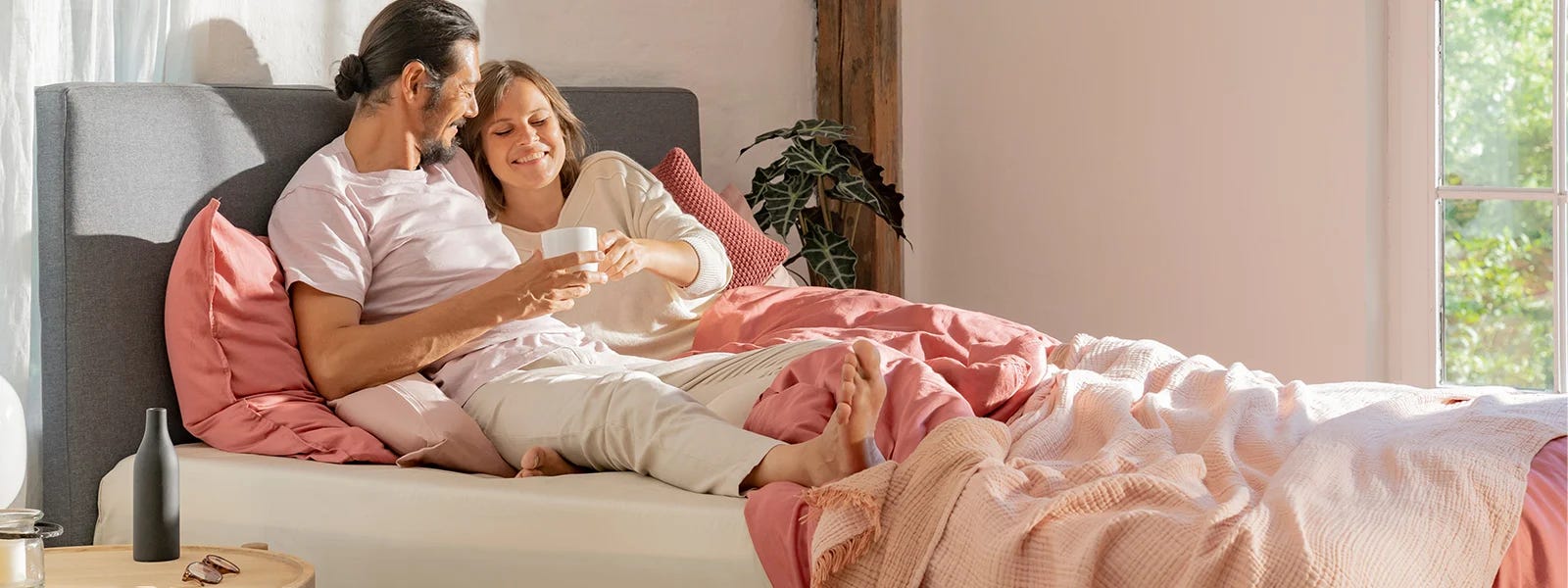
OUR SERVICE PROMISE TO YOU
Take the stress out of it
Sleep Better. Try it Now!
